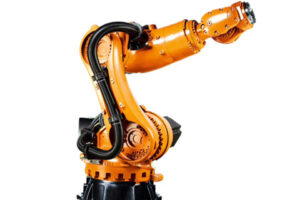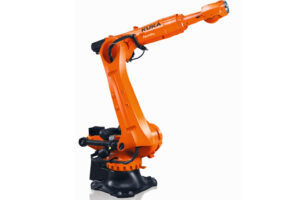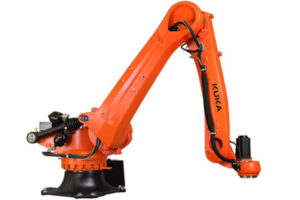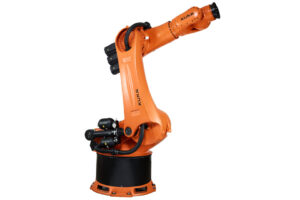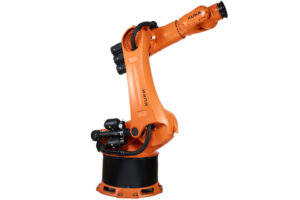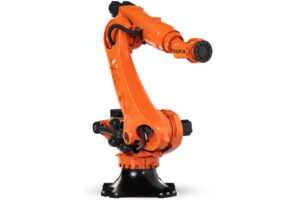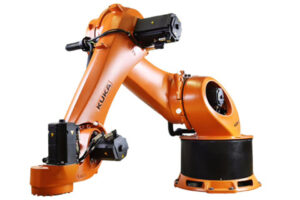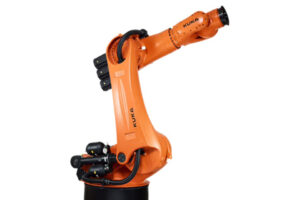
Build Homes Faster: Kuka Robotics & Automated Modular Houses Building
Table of Contents
The construction industry is ripe for disruption! This article explores how Kuka Robotics is revolutionizing home construction through automated modular house building. Discover how this innovative approach is addressing the global demand for affordable housing and creating a new way of building that is faster, more efficient, and more sustainable.
1. Why is the Construction Industry Ripe for Disruption Through Automation?
The construction industry, while essential, faces significant challenges that make it ripe for disruption through automation. The construction industry needs to make advancements. Many of the methods are time-consuming. New advancements will provide time savings.
These challenges include:
- Low Productivity: The construction industry has seen relatively low productivity growth compared to other sectors. Low productivity is a concern for many of the workers in this industry.
- Labor Shortages: There is a growing shortage of skilled workers in the construction industry. That’s because of an aging workforce. More skilled workers need to enter the field to help combat this concern.
- Rising Costs: The high costs of labor, materials, and land contribute to rising housing costs, making it difficult for many people to afford a home. Affordable housing should be obtainable for all who need it.
- Safety Concerns: Construction sites can be dangerous, with a high risk of accidents and injuries. Construction sites can also be challenging environments.
- Sustainability Issues: Traditional construction methods generate significant amounts of waste and contribute to environmental degradation. There needs to be new methods to be more environmentally sound.
Automation offers a way to address these challenges, making the construction industry more efficient, sustainable, and affordable. It is something that must be addressed in the modern era. Modern solutions are needed to help modernize the business practice.
2. Automated Modular House: What Exactly is Automated Modular Construction?
Automated modular construction is a process that uses robots and other automated equipment to manufacture building modules in a factory setting. Automated modular construction is a revolutionary new solution. This is also something that is easily obtained.
The modules are then transported to the construction site and assembled to create complete buildings. The use of robots helps make everything more streamlined. Transportation is still a key component.
This approach offers several advantages over traditional construction methods, including faster construction times, reduced costs, improved quality control, and increased sustainability. It helps make everything better and helps to improve construction time.
3. What are the Key Benefits of Automated Modular House Building?
Automated modular construction offers a wide range of benefits to builders, developers, and homeowners. The key benefits include:
- Faster Construction Times: The construction process is much faster than traditional methods. The automated process is also much quicker.
- Reduced Costs: Automation reduces labor costs and minimizes material waste. This keeps building costs down.
- Improved Quality Control: Robots perform tasks with greater precision and consistency, improving product quality. That also reduces mistakes.
- Increased Sustainability: Modular construction reduces waste and minimizes the environmental impact of the construction process. With that in mind, that allows modular construction to be the more sound solution.
These benefits make automated modular construction an attractive solution for addressing the global demand for affordable and sustainable housing. This also helps with reducing costs. It helps with providing sustainable solutions.
4. How Are Kuka Robots Being Used in Automated Modular Construction Processes?
Kuka robots are playing a crucial role in automating various tasks within modular construction.
These robots are used to:
- Welding Steel Frames: The Kuka robots help weld metal frames together.
Installing Insulation: The robots help ensure the insulation is being installed properly.
Assembling Walls and Floors: Kuka’s design allows for automated floor and wall assembly.
Installing Plumbing and Electrical Systems: The robot helps maintain plumbing systems.
These are just a few examples of the many ways that Kuka robots are being used to automate the modular construction process. Automating assembly and process, helps streamline the creation of buildings. These processes allow engineers to streamline production.
5. Affordable Housing: How Can Automated Modular Construction Help Address the Housing Crisis?
Automated modular construction offers a promising solution for addressing the affordable housing crisis. Robots can help reduce costs and improve efficiency. This would mean that the price to the consumer would also be reduced. It would have a significant impact.
This helps to make this affordable to both the consumer and to the business. All the more reason to start using the building method. In many communities, affordable housing is difficult to obtain. This makes finding new ways to produce more affordable housing all that more important. The combination of factors can help solve some of the biggest issues.
6. Sustainability: What Environmental Advantages Does Automated Modular Construction Offer?
Automated modular construction offers significant environmental advantages. Sustainable housing should be obtained for the future generations. This form of housing works to deliver on a promise of being good to the planet and good for you.
These advantages include:
- Reduced Waste: It would help reduce waste.
- Lower Energy Costs: The energy that it takes to produce the building is also kept down.
- Sustainable Materials: It utilizes sustainable materials and methods.
All that combined helps create a better and more robust building approach that is better for humanity and can help continue to give back to the environment for future generations. With sustainable options, the possibilities are endless. By 2017, the practice has become extremely apparent.
7. Construction Time: How Much Faster is Automated Modular Construction Compared to Traditional Methods?
One of the most significant advantages of automated modular construction is the reduction in construction time. Because these steps happen ahead of time, it may take a shorter time than you may have planned. This means that time may be reduced to half or even to a quarter of the normal build time.
The new level of automation helps reduce time frames in several processes. This makes a business more efficient, so it reduces costs. Robots help to complete everything much faster. These processes enable a streamlined new way.
8. Who is P4 Housing Collective and What is Their Role in this Innovation?
P4 Housing Collective is an automation company that specializes in construction. In effect, with the help of AI, they are building a new construction ecosystem, or “Plant.” It helps to automate this process and innovate a construction and automation.
By providing this expertise and insight into the technology, they hope to inspire others. These teams are able to work together to provide a quality offering. The products and services designed will be very beneficial. Kuka is working with partners.
9. Automotive Industry: Can You Envision to Adopt the Manufacturing Processes?
The automotive industry processes, such as welding, assembly, and painting, are highly automated. The reason is that people are thinking about the logistics combined. To work together and automate the processes involved. As they see what these innovative companies have provided in construction engineering and manufacturing, it may be something that will become adopted.
Having something with a high degree of automation is key. Also, many parts of the construction site can be dangerous. So why not automate the manufacturing? In that regard, all can benefit from robotics. To help deliver on the core tenents. New things can make big advancements in construction.
10. What is the Future of Kuka Robotics in Automated Modular Construction?
The future of Kuka Robotics is bright. A robot’s performance improves every year, and Kuka is leading the way in innovation. It can also help lead to new advancements and help improve the manufacturing process through an ecosystem that is designed to help create more homes.
The building practices continue to evolve through robotics and their innovative solutions in construction. We can hope to see Kuka and their work in construction for many years to come. The Kuka has a bright future with sustainable options on the horizon. The Kuka is working to innovate new construction.
Key Takeaways
- The construction industry is ripe for disruption due to low productivity, labor shortages, and rising costs.
- Automated modular construction offers a faster, more efficient, and more sustainable way to build homes.
- Kuka robots are being used to automate various tasks in the construction process.
- Automated modular construction can help address the affordable housing crisis.
- It is essential to provide environmentally sound benefits with this type of structure.
- These products and services are helping to improve our lives.
- It’s revolutionizing manufacturing and helps automate production.
- These innovative companies, are hoping to lead the way.
- Consider a logistics combined option, working together with Kuka.
- The Kuka is here to stay and innovate the global demand for affordable housing.
Comments
Tags
- 09:00 - 21:00
- +86 159 1010 0309
- [email protected]
KUKA Robot: The Edge and Challenge of the Industrial Automation Revolution
As one of the four major families of industrial robots in the world, KUKA has set off a wave of intelligence in the manufacturing industry with its modular design and human-machine collaboration innovation.
KUKA Robots and New Generation Engineers: Building a Talent Ecosystem for Intelligent Manufacturing
At a time when Industry 4.0 and intelligent manufacturing are deeply integrated, KUKA Robots builds a bridge between university education and industry needs through collaborative education system between schools and enterprises and full-cycle career development path.
KUKA Robot: The Intelligent Engine for Reshaping the Automation of Automobile Production Lines
In the process of automobile manufacturing industry moving towards Industry 4.0, KUKA robots have become the core driving force for the intelligentization of production lines with their millimeter-level positioning accuracy and full-process digital integration capabilities.
KUKA milling robot: a disruptive revolution in CNC automation
In the field of precision machining dominated by traditional CNC machine tools, KUKA milling robots are reshaping the underlying logic of the manufacturing industry through multi-axis collaborative control and intelligent software ecosystem.
KUKA Robot: The Innovative Power of Programming and Automation Technology
In the wave of Industry 4.0 and intelligent manufacturing, KUKA robots have become the core driving force for the transformation of the global manufacturing industry with their excellent programming flexibility and automation capabilities.
KUKA LBR Med: Seven-axis sensitive robot reshapes nine technical paradigms of healthcare
Against the backdrop of the rapid expansion of the medical robot market at a compound annual growth rate of 19.3%, the KUKA LBR Med seven-axis collaborative robot is reshaping core medical scenarios.
Robotic Revolution: Seven Technology Engines Reconstructing the Industrial 4.0 Manufacturing Paradigm
In the wave of Industrial 4.0, robotics technology is reshaping the global manufacturing industry at a compound annual growth rate of 23%.
KUKA Medical Robots: Seven Technological Innovations to Reshape the Medical Industry in 2025
Under the dual pressures of an aging population and a shortage of medical resources, KUKA Medical Robots is reshaping the global medical landscape through seven technological innovations.
Joining Forces with KUKA: Revolutionizing Joining Processes with Robotic Automation
This article explores how KUKA Robotics is transforming joining processes across various industries.
KUKA vs. FANUC vs. ABB: Key Differences Compared in Robotics
Choosing between industrial robotics giants—KUKA, FANUC, and ABB—can be a complex decision.


